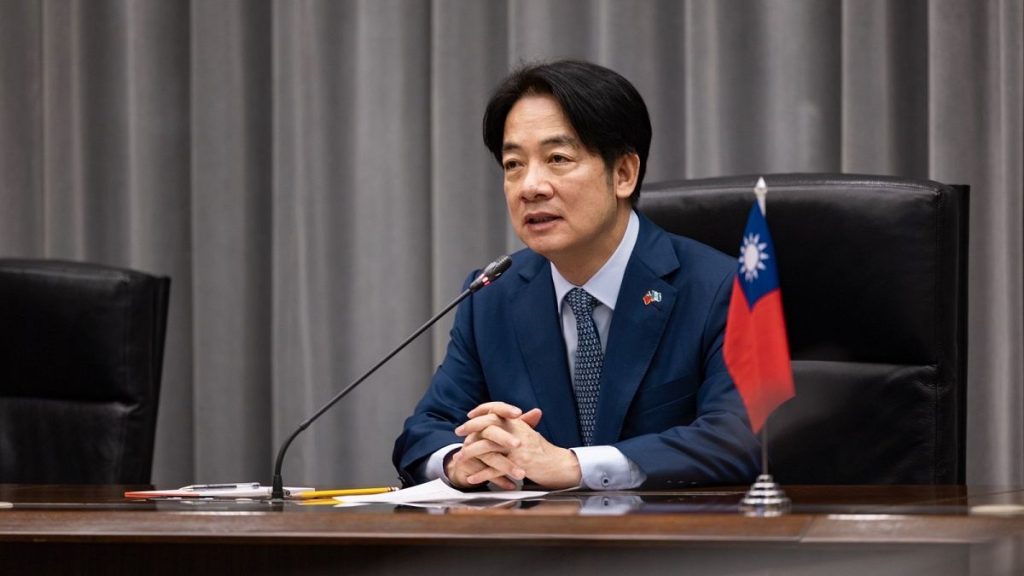William Lai, also known as Lai Ching-te, has been inaugurated as Taiwan’s new president, succeeding Tsai Ing-wen. Lai has a background in medicine and has held various political positions within the Democratic Progressive Party. He won the presidential election with 40% of the vote, marking the DPP’s third consecutive term in power. Lai is focused on continuity and has pledged to support Taiwan’s participation in international organizations, such as the World Health Assembly.
Lai’s stance on Taiwan-China relations emphasizes maintaining the status quo and peaceful means of dialogue. While he has previously expressed support for Taiwan independence, he now emphasizes that Taiwan is de facto independent and there is no need for a formal declaration. Lai has invited China to resume formal dialogues based on parity and dignity but remains firm on Taiwan’s sovereignty. Beijing has dismissed Lai’s calls for peaceful dialogue, insisting that Taiwan independence is doomed to failure.
One of Lai’s key priorities is to bring investments back to Taiwan, particularly in high-tech sectors like semiconductors, AI, and communications. Taiwan’s expertise in semiconductor manufacturing has positioned the island as a strategic player in global supply chains. Lai aims to leverage this advantage to attract Taiwanese businesses back to invest in Taiwan while also seeking bilateral investment agreements with other democracies. The EU has shown interest in collaborating with Taiwan on semiconductor technology and investments.
Taiwan’s alignment with Western democracies, particularly in light of China’s aggressive actions, is a central pillar of Lai’s foreign policy strategy. Taiwan currently maintains diplomatic relations with a limited number of countries but is focused on strengthening partnerships with like-minded democracies. Lai has expressed support for Ukraine and has imposed sanctions on Russia, aligning Taiwan with Western efforts to deter aggression. Taiwan’s model of liberal democracy is seen as a key asset in distancing the island from China and forging stronger ties with Western allies.
Lai’s administration is prioritizing international engagement, despite his lack of foreign policy experience. He has appointed key officials with extensive diplomatic backgrounds, indicating a commitment to strengthening Taiwan’s ties with Western partners and pursuing collaborative initiatives on various issues. The EU and Taiwan have ongoing consultations on trade, technology, and supply chain matters, with a particular focus on semiconductors. Taiwan’s role as a crucial trading partner for the EU underscores the potential for deeper cooperation between the two entities on shared interests.
Overall, Lai’s presidency marks a new chapter for Taiwan, with a focus on continuity while navigating the complex geopolitical landscape. Taiwan’s position as a high-tech hub and strategic player in global supply chains presents opportunities for economic growth and collaboration with international partners. By emphasizing Taiwan’s independent identity and aligning with Western democracies, Lai aims to strengthen Taiwan’s position on the world stage and forge alliances to safeguard the island’s sovereignty and security amid growing tensions in the region.


